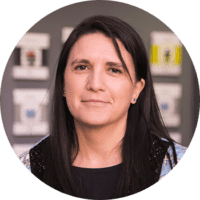B.S. in Computer Science
U-tad students rank in the top 10 for academic excellence, according to SEDEA
Registration for the 2024-2025 academic year is now open.
Enrollment period from May 1st to September 30th, 2024.

Need advice on what to study?
I'm Laura and you can reach me to solve any questions
Want to make it real?
Fill out the form and receive the brochureDone!
Description
If you’re looking for a degree that will prepare you for the future, if you believe technology drives society forward, and you want to be part of the great transformation that we’re experiencing, this is the degree for you Study Computer Science + a Specialized Program in Generative Artificial Intelligence at the pioneering and leading institution of technological education. This outstanding academic program, designed by top-tier professionals and endorsed by the leading companies in the industry, delivers extraordinary results: our students achieve employability, and our graduates rank in the top 10 for academic excellence, according to SEDEA.
At U-tad, we train you to become a software engineer capable of planning, designing, and implementing the applications and services that power today’s digital industry: banking, healthcare services, the Internet of Things (IoT), information security, entertainment, and more.
We want our students to be at the forefront of technology, which is why we have developed a Generative AI program that equips Engineering students with the skills to use AI-powered tools.
This course is taught during the first two years of the degree and focuses on the practical use of tools that are updated annually to keep pace with technological advancements.
You will learn from doctors and professionals who are leaders in the industry, using the latest technology and a practical methodology where you will work on real projects and in multidisciplinary teams, just as companies work today.
At U-tad we believe in teamwork, starting with our teachers, who encourage support activities and tutoring in class, so that no one is left behind. You will have personalized attention that will allow you to develop your full potential.
The results speak for themselves: our students are among the top ten in the ranking of SEDEA, the Spanish Society of Academic Excellence.
In addition, from the third year onwards you can choose to specialize in one of the two areas with the most professional opportunities, thanks to the Mentions in Data Engineering and Cybersecurity.
Or you can choose subjects from both specializations, with which you will have a more general knowledge of all these areas.
Also, you can also study this degree in English in the Data Engineering Mention.
Mentions in which you can specialize
- Location: U-tad Campus
- Hours: Monday – Friday
- ECTS: 240
- Language: Spanish or English
- Modality: In campus
- Places: 120 in-person and 60 remotely
Centro Universitario adscrito: ![]()
Skills and career opportunities for the Degree in Computer Science
- Chief Technology Officer
- Project Manager
- Software Architect
- Application Developer
- Data Scientist
- Artificial Intelligence Developer
- Security Analyst
- Forensic Analyst
- Ethical Hacking Expert
- Cybersecurity Tools Developer
- Physics Simulations Developer
- Visual Effects Developer
- Developer of immersive VR experiences
- Video Game Developer
Where our students work
Our training is developed by Industrial Committees, formed by the most relevant companies in the Data Engineering, Cybersecurity and Graphic Programming, Virtual Reality and Video Games sectors in our country, which guarantees a constant update of the study plans to the real needs of the industry. Companies that look for talent in our students to lead their most innovative projects year after year come to U-tad’s Company Day to hire profiles, confirming the quality of our training, from a technical point of view, as well as from a “soft skills” point of view: teamwork, flexibility, proactivity.
The U-tad title has a strong prestige in the market and opens doors to the most demanding companies.
Partner companies

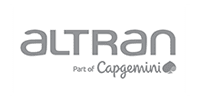



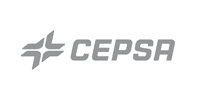

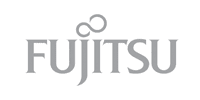
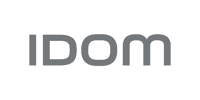
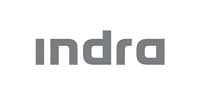
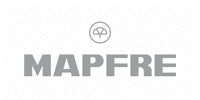
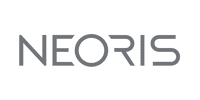
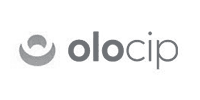
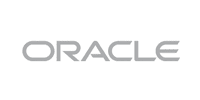





Students' projects and awards
Your Project: your ideal letter of recommendation
At U-tad you will participate in team projects, through which you will strengthen and relate all the theoretical knowledge acquired, and you will improve your creative, technological and collaborative capacity with the help of the students from other areas of U-tad. These projects, in addition to being an excellent way to learn, will be the best presentation letter of your abilities and knowledge to the companies.
Because we firmly believe in the “learning by doing” methodology: our students stand out for their ability to tackle challenges in a creative and innovative way, seeking disruptive solutions, many of which are even the subject of research.
Talent Awards
U- tad students have received more than 130 awards in national and international competitions, and it shows the capacity and quality of our students’ training.
Students' feedback
We are very proud of our students because they stand out for their talent and daily effort. In addition, the training received at U-tad provides them with solid knowledge to develop their careers in the sectors they are most passionate about.


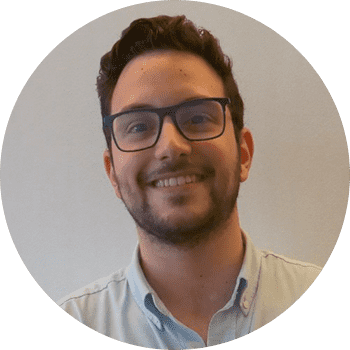
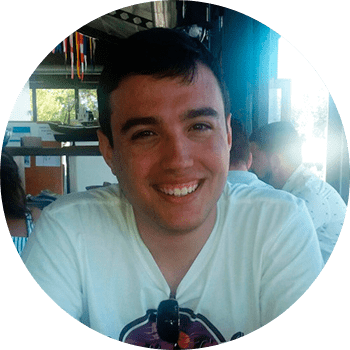


International mobility
At U-tad we have an International Relations Department from which we coordinate and establish agreements with university institutions around the world, as well as with official bodies responsible for the international inter-university cooperation. We have agreements with prestigious universities across five continents and we work to increase the number of institutions with exchange agreements either within the Erasmus programme or with bilateral exchange agreements.
- Universities such as Beijing Jiatong University of Software Engineering (China)
- Soongsil University (Korea)
- Epitech (France)
- Xi’an Jiaotong-Liverpool University (China)
- Malmö (Sweden)
- University of Milan Studies (Italy)Algebra University College (Croatia)
- APAEP and UP (Mexico)
Faculty

Francisco Javier García Algarra
- Engineering Academic Director
- Academic Director and Teacher at U-tad

Elena García Gamella
- Academic coordinator of the degree in Software Engineering
- Service and Operation Manager at Telefónica
Study plan
| SUBJECT | YEAR | DURATION | TYPE | ECTS |
| Web development fundamentals | 1 | 1st semester | B | 6 |
| Introduction to Programming I | 1 | 1st semester | B | 6 |
| Operating Systems and Networks Lab | 1 | 1st semester | OB | 6 |
| Logic and Discrete Mathematics | 1 | 1st semester | B | 6 |
| Creative Thinking | 1 | 1st semester | OB | 3 |
| Algebra | 1 | 2nd semester | B | 6 |
| Computer Architecture | 1 | 2nd semester | B | 6 |
| Introduction to Programming II | 1 | 2nd semester | OB | 6 |
| Databases and Distributed Systems Lab | 1 | 2nd semester | OB | 6 |
| Digital Society | 1 | 2nd semester | OB | 3 |
| Projects I: Digital technologies and techniques | 1 | ANNUAL | OB | 6 |
Graphic legend: Basic Training (B) | Compulsory (OB) | Electives (OP) | Compulsory Minor Subject (OBM) | External Internships (PE) | Final Degree Project (TFG)
| SUBJECT | YEAR | DURATION | TYPE | ECTS |
| Fundamentals of Visual Composition | 2 | 1st semester | OB | 3 |
| Probability and Statistics | 2 | 1st semester | B | 6 |
| Object Oriented Programming | 2 | 1st semester | OB | 6 |
| Computer Networks | 2 | 1st semester | B | 6 |
| Operating Systems | 2 | 1st semester | B | 6 |
| Analysis and Design of Algorithms | 2 | 2nd semester | OB | 6 |
| Data Base | 2 | 2nd semester | B | 6 |
| Calculus | 2 | 2nd semester | B | 6 |
| Software Design | 2 | 2nd semester | OB | 6 |
| Digital Models and Business | 2 | 2nd semester | OB | 3 |
| Projects II: Trends in Software Engineering | 2 | ANNUAL | OB | 6 |
| SUBJECT | YEAR | DURATION | TYPE | ECTS |
| Artificial Intelligence | 3 | 1st semester | OB | 6 |
| Project Management | 3 | 1st semester | OB | 3 |
| Distributed Systems Programming | 3 | 1st semester | OB | 6 |
| Web Development I, Client | 3 | 1st semester | OB | 6 |
| Web Development II, Server | 3 | 2nd semester | OB | 6 |
| Mobile Apps Development | 3 | 2nd semester | OB | 3 |
| UX Fundamentals | 3 | 2nd semester | OB | 3 |
| Projects III: Web and app development | 3 | ANNUAL | OB | 9 |
| Minor in Data Engineering | ||||
| Advanced Databases | 3 | 1er semestre | OBM | 6 |
| Information Retrieval and Analysis | 3 | 2º semestre | OBM | 6 |
| Data Processing | 3 | 2º semestre | OBM | 6 |
| SUBJECT | YEAR | DURATION | TYPE | ECTS |
| End-of-Degree project | 4 | ANNUAL | OB | 9 |
| Business creation and management | 4 | 1st semester | OB | 3 |
| Software Engineering | 4 | 1st semester | OB | 6 |
| Paradigms of Programming | 4 | 1st semester | OB | 3 |
| OPTIONAL Work Environment |
| |||
| Training for employment | 4 | 2nd semester | OP | 6 |
| Company internships | 4 | 2nd semester | OP | 6 |
| OPTIONAL Subjects | ||||
| Low-level programming | 4 | 2nd semester | OP | 3 |
| Software verification | 4 | 2nd semester | OP | 3 |
| Minor in Data Engineering | ||||
| Data Engineering Projects | 4 | ANNUAL | OBM | 9 |
| Machine Learning I | 4 | 1st semester | OBM | 6 |
| Computer Vision | 4 | 1st semester | OBM | 6 |
| Machine Learning II | 4 | 2nd semester | OBM | 6 |
| Data Visualization | 4 | 2nd semester | OBM | 3 |
* This degree is in the process of renewal of its accreditation. Any interested person can communicate to the evaluation panels their opinion on any aspect related to this official degree by filling out the form of Audiencia Abierta.
Additional informartion
- Year of implementation: 2018-2019
- Spots for new students in the Degree: 120 in person + 60 online
- Branch of knowledge: Engineering and Architecture
Minimum number of ECTS per type of registration and course:
| Minimum | Maximum | |
| Full time 1st course | 60 | 60 |
| Full time rest of courses | 30 | 75 |
| Part-time 1st course | 25 | 30 |
| Part-time rest of courses | 18 | 45 |
